Compost vs Humus: What Are The Differences You Should Know?
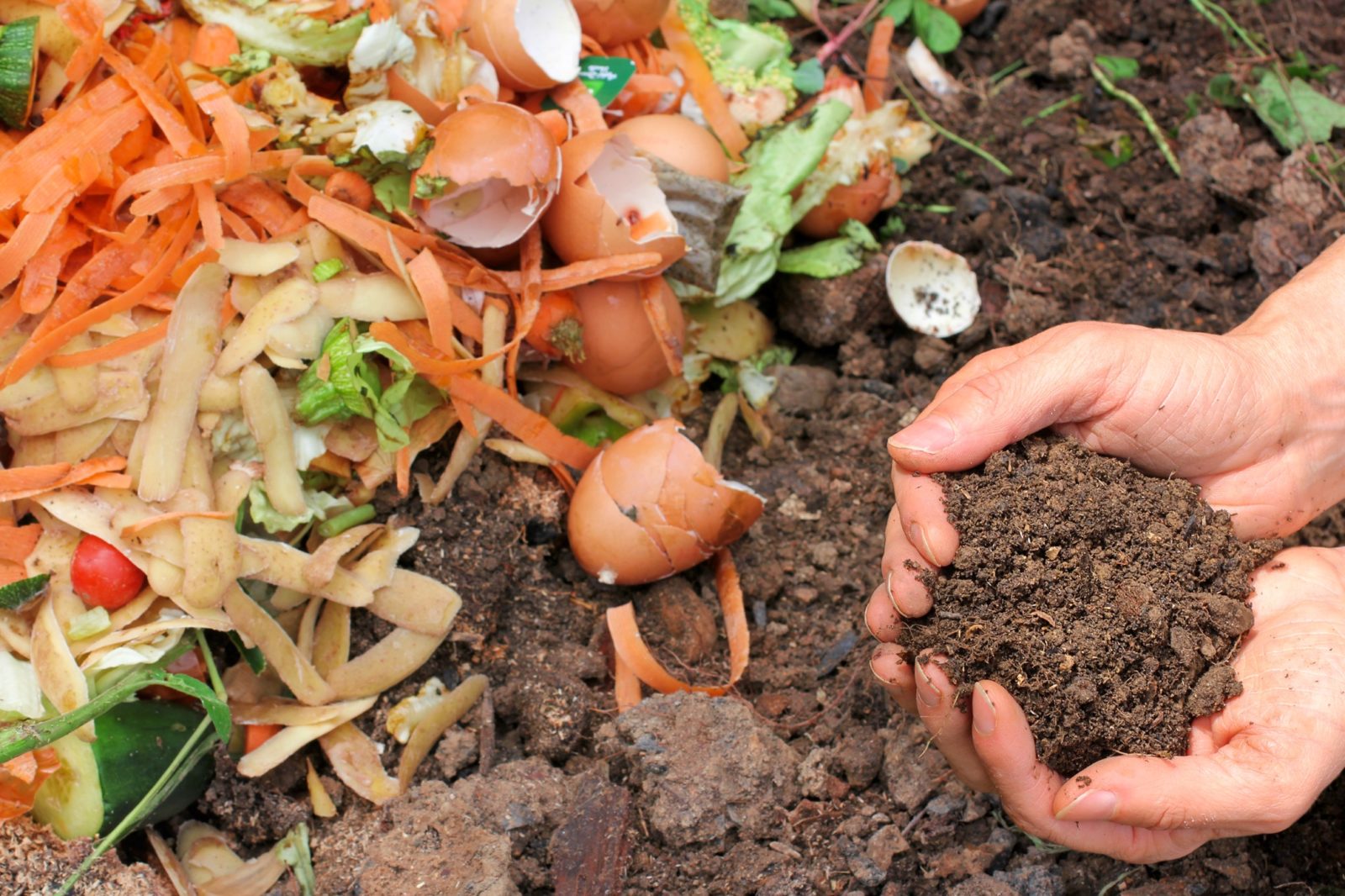

Elizabeth is a Permaculture Garden Designer, Sustainability Consultant and Professional Writer, working as an advocate for positive change. She graduated from the University of St. Andrews with an MA in English and Philosophy and obtained a Diploma in Applied Permaculture Design from the Permaculture Association.
Reviewed By COLIN SKELLY

Colin is a Horticulturist and Horticultural Consultant with experience in a range of practical and managerial roles across heritage, commercial and public horticulture. He holds the Royal Horticultural Society’s Master of Horticulture award and has a particular interest in horticultural ecology and naturalistic planting for habitat and climate resilience.
Compost and humus are both substances which involve organic matter, but it is important to understand that they are not the same thing.
In organic gardening, the health of the soil is one of the most important things, and knowing the difference between compost and humus can help us understand how soil is formed, and how to manage and care for it in our gardens most effectively.
What Is Compost?
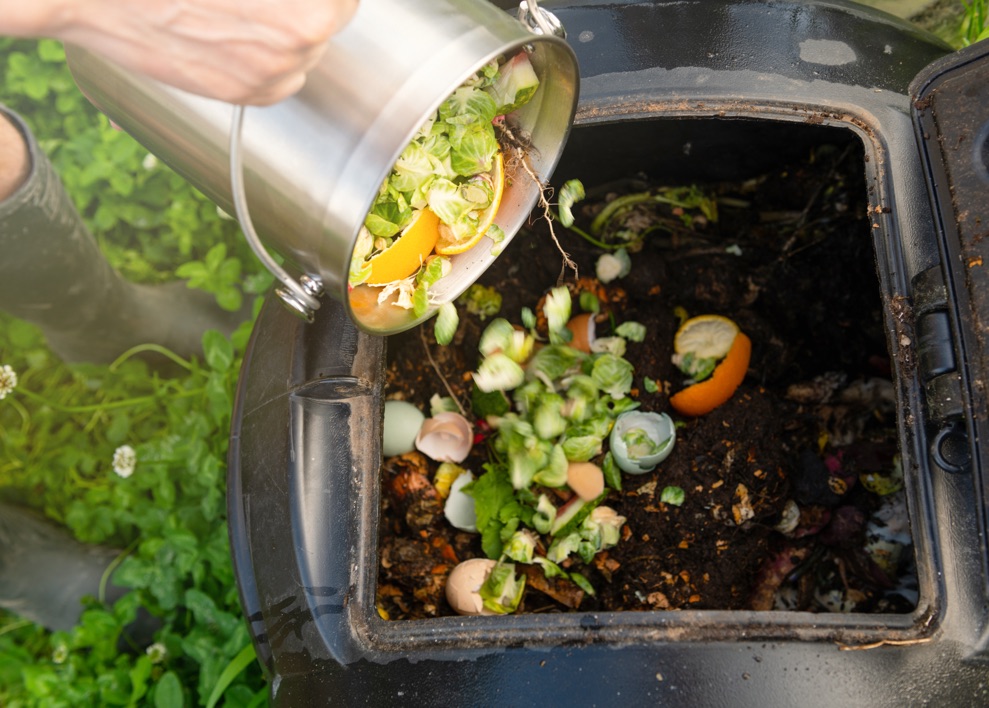
Compost is a natural material formed as organic materials (fruit and vegetable scraps, garden trimmings and other compostable materials) start to break down.1Composting. (n.d.). Royal Horticultural Society. Retrieved March 14, 2023, from https://www.rhs.org.uk/soil-composts-mulches/composting
It can be created in nature, and also through our own agency, in a compost heap or bin.
Composting begins with organic material – which begins to break down through the agency of micro-organisms, earthworms and other soil life.
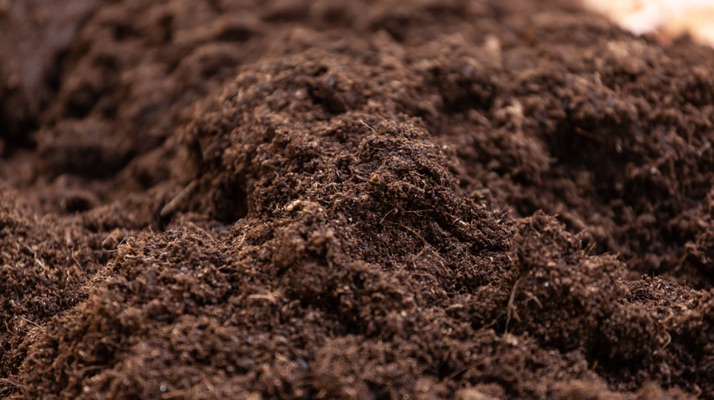
The quality of compost will depend very much on the materials which have gone into making it, and the speed at which the decomposition in home composting takes place will depend on the process that is used.
A compost is typically said to be ‘finished’ when it is brown, with an earthy smell and few remaining signs of the original organic materials.2Making compost. (n.d.). Royal Horticultural Society. Retrieved March 14, 2023, from https://www.rhs.org.uk/videos/advice/Making-compost
But this material is far from stable and it is important to understand that a finished compost will break down further in the right conditions, releasing nutrients for the uptake of plants growing nearby as well as providing food for soil life.
What Is Humus?

Confusion arises because the term humus is used in different contexts to mean slightly different things.
Sometimes, humus is used to refer to mature natural compost which has formed without human intervention, such as on a forest floor.3Organic matter: how to use in the garden. (n.d.). Royal Horticultural Society. Retrieved March 14, 2023, from https://www.rhs.org.uk/soil-composts-mulches/organic-matter-how-to-use-in-garden
It is therefore distinguished from compost by the source of the material.
However, this is a looser use of the term and scientists will usually define humus more precisely.
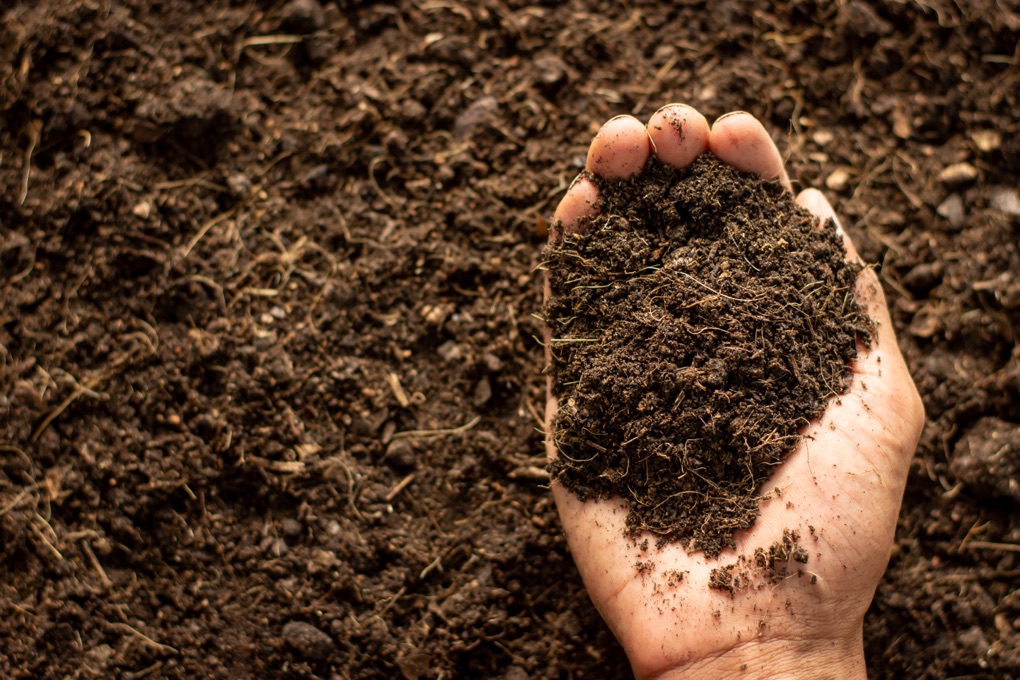
In agriculture and horticulture, the term humus is often used to refer to the ultimate result of natural decomposition.4Organic matter: what is it? (n.d.). Royal Horticultural Society. Retrieved March 14, 2023, from https://www.rhs.org.uk/soil-composts-mulches/what-is-organic-matter
The term humus is also used to describe a topsoil horizon (soil layer) which contains soil organic matter.
Humus is a stable component of healthy soil.
The most important thing to understand is that humus, strictly speaking, is a later stage in the decomposition process, so all organic matter and composts can ultimately become humus over a longer period of time.
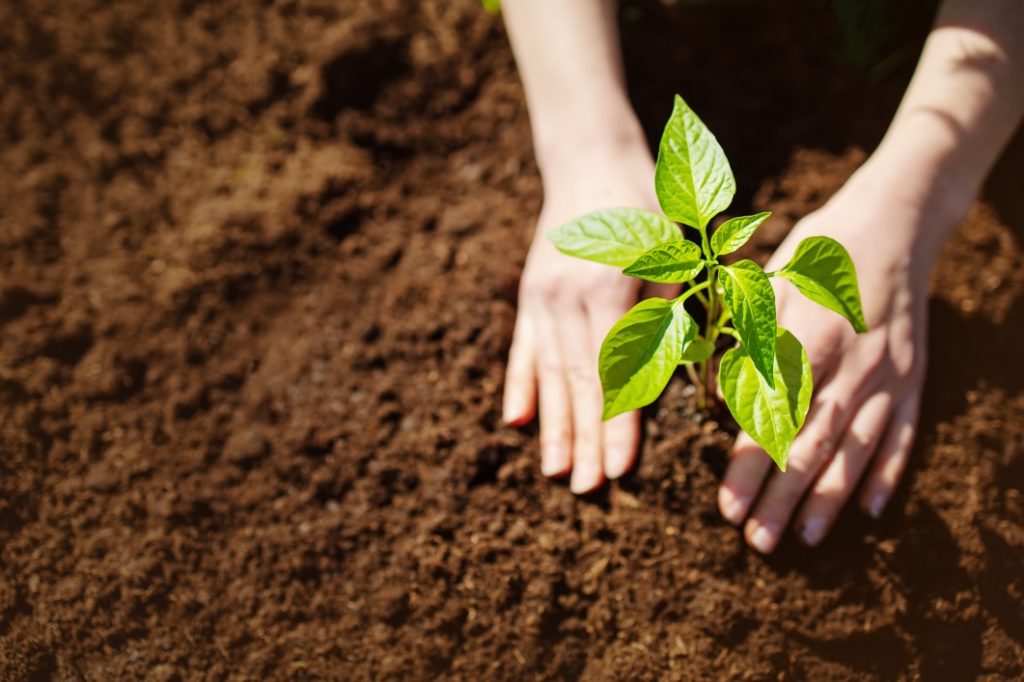
Compost, in simple terms, is a work in process, while humus is the (often chemically stable) soil component that results from a further decomposition process.
Humus will often remain in the soil for many years or will break down only very slowly, depending on the conditions.5Fowler, A. (2022, August 15). Provide shade, make compost and leave the weeds: six ways to heatproof your garden. The Guardian. Retrieved March 14, 2023, from https://www.theguardian.com/lifeandstyle/2022/aug/15/six-ways-heatproof-garden-provide-shade-make-compost-leave-weeds
Compost can become humus, but this process can take a very long time.
Decomposition In The Creation Of Compost & Humus
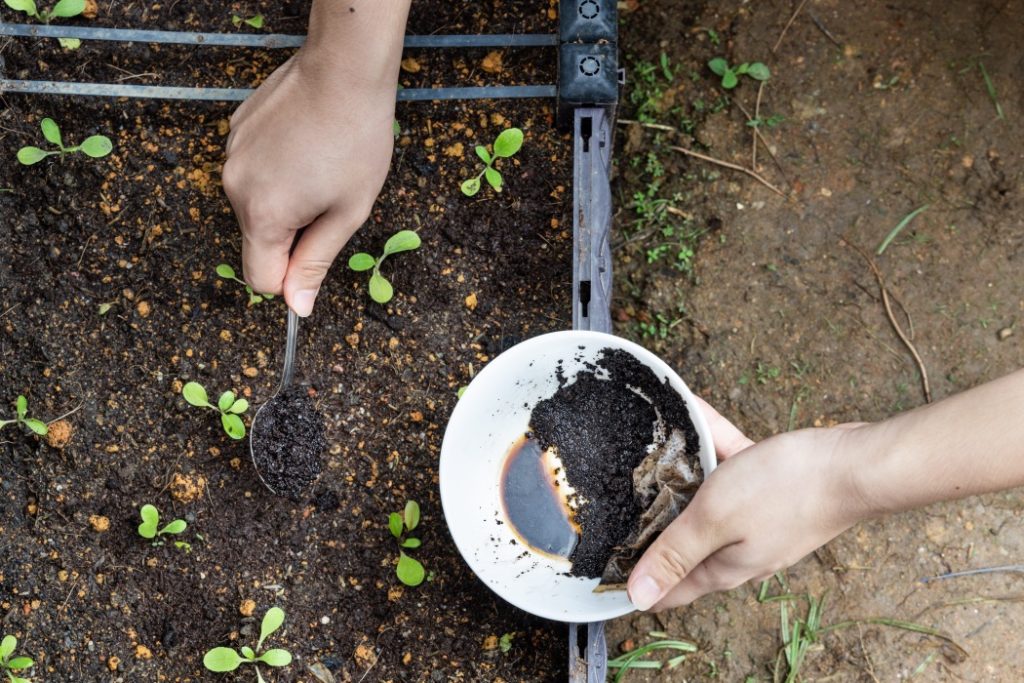
Compost is a substance which is formed when organic materials begin to break down.6Making compost. (2010, July 29). BBC Gardening. Retrieved March 14, 2023, from https://www.bbc.co.uk/gardening/basics/techniques/soil_makecompost1.shtml
Usually, this breakdown occurs aerobically.
In other words, the materials break down in the presence of oxygen, with the aid of the micro-organisms which require oxygen to survive.7Making Compost. (n.d.). RHS Masterclass. Retrieved March 14, 2023, from https://www.rhs.org.uk/about-the-rhs/publications/the-garden/the-garden-back-issues/2014-issues/February/compost-masterclass.pdf
Humus, a dark brownish organic material, forms in soil when plant or animal-derived matter (including your aerobic homemade compost) breaks down further.
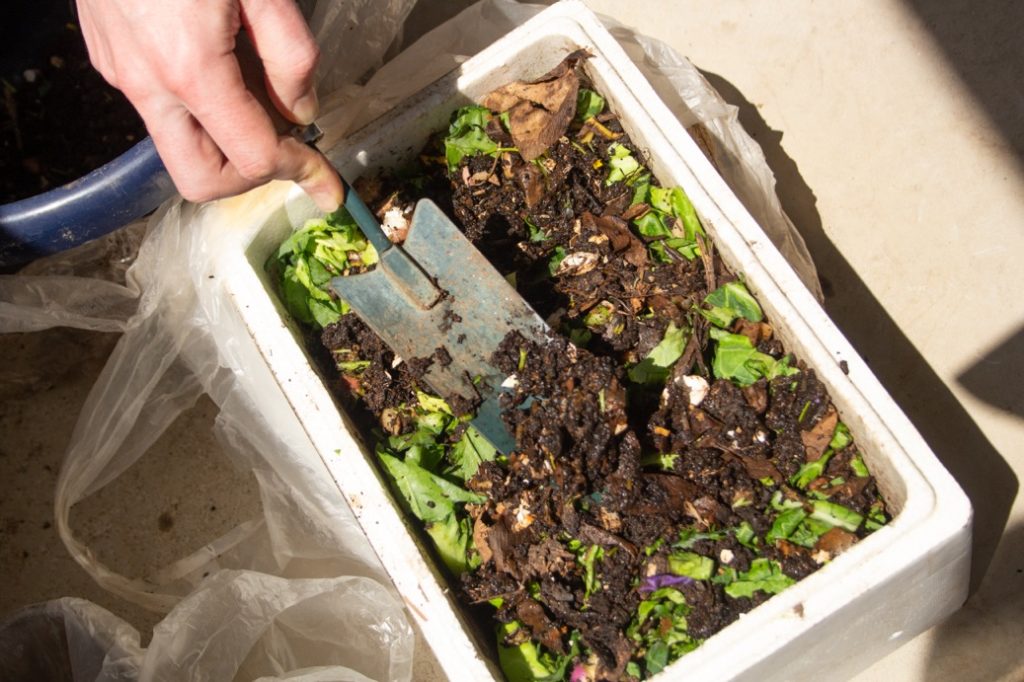
When we talk about a ‘finished’ compost, this is a rather misleading term, because the brown, friable, moist compost that we use in containers or as a soil amendment still contains a lot of material that remains to be broken down.
“Compost is the beginning of the process of humus creation,” explains Colin Skelly, a Master Horticulturist.
“Adding compost to your soil as mulch annually means that the humification process is ongoing and that soil health is optimised. Over time, this will ensure that plant nutrients are in good supply and that moisture holding and drainage are improved.”
There is typically still plenty of ‘food’ for microorganisms and nutrients for plants.
The process for making both compost and humus begins with micro-organisms and other soil life which break down organic matter into minerals that the roots of plants can absorb as nutrients.
This process, called mineralisation, takes place in composting and continues when compost is added to the soil.8Ashwanden, C. (2017, August 11). Soil Mineralisation Part 1: What Do We Need To Add To Our Soils And Why? The Permaculture Research Institute. Retrieved March 14, 2023, from https://www.permaculturenews.org/2017/08/11/soil-mineralisation-part-1-need-add-soils/
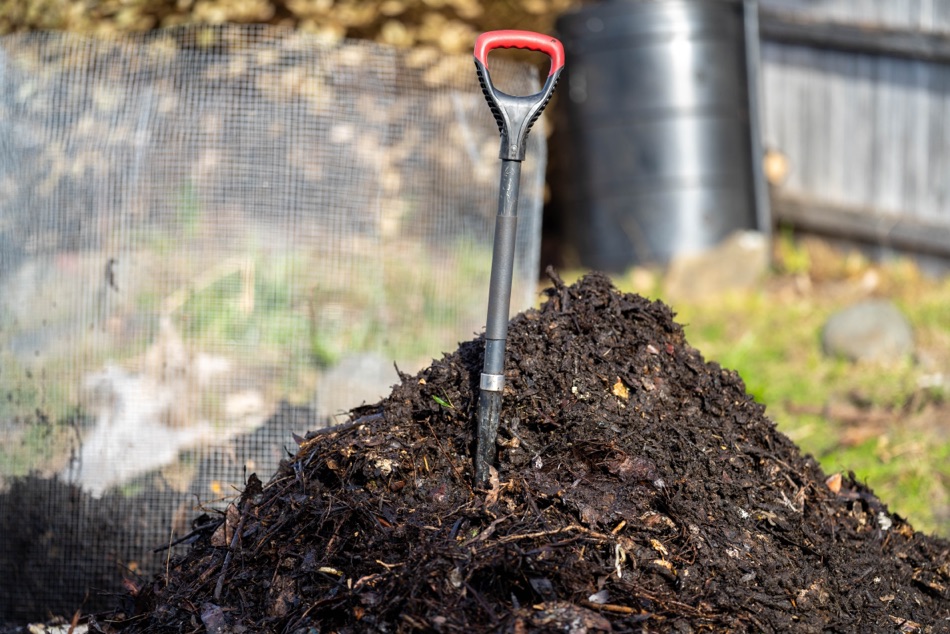
However, in certain conditions, a proportion of the organic matter does not mineralise and instead transforms into a series of stable organic polymers.
The further breakdown of these materials through the agency of soil life over time is called humification.9RHS Level 3 Question – Carbon Cycle. (2020, September 7). Edinburgh Garden School. Retrieved March 14, 2023, from https://www.edinburghgardenschool.com/2016/05/rhs-level-3-question-carbon-cycle/
The humification process takes place in various stages, as different organic compounds decompose through a range of processes, involving a number of organisms.
Once humification has occurred, microorganisms no longer affect the material, and this stable substance may be integrated into the structure of the soil, sequestering carbon within the soil ecosystem.

However, while scientists have learned a lot about the nature of humus in recent years, the substance is still surprisingly little understood.
Science is divided about exactly how stable soil organic carbon is in soil humus, and its complex composition makes analysis a challenge.10Dynamic Stability of Soil Carbon: Reassessing the “Permanence” of Soil Carbon Sequestration. (n.d.). Frontiers. Retrieved March 14, 2023, from https://www.frontiersin.org/articles/10.3389/fenvs.2020.514701/full
It is clear, however, that humus is a crucial component in a healthy soil, often dubbed the ‘life force’ of the soil.
Adding Compost To Create A Humus-Rich Soil
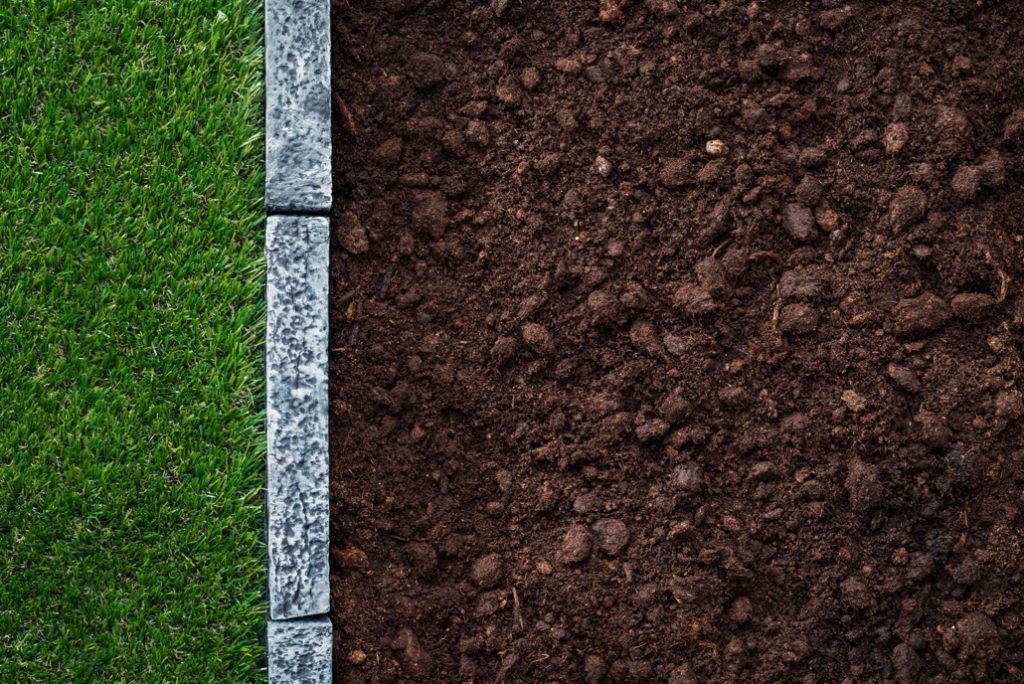
Adding compost to the soil in your garden (by top dressing as a mulch in a no-dig garden) we are mimicking nature and allowing the materials to break down further through a range of natural processes.
Eventually, humus will build in the soil, bringing a wide range of benefits.
A healthy soil should contain organic material at different stages of decomposition, as well as all the organisms that work to keep cycles turning as they should.
By adding organic mulches and compost to the soil, we provide the raw ingredients for the formation of a healthy humus-rich soil, which sequesters carbon, maintains healthy soil life populations, retains moisture, and increases the ability of the soil to store nutrients.

Building healthy soil takes time, and creating a humus-rich soil is our goal.
Using compost, along with other organic materials like well-rotted manures and chopped and dropped plant materials, helps us create the right environment for humification and other soil processes to take place.
And, as all organic home growers should remember – healthy soil equals healthy plants.
References
- 1Composting. (n.d.). Royal Horticultural Society. Retrieved March 14, 2023, from https://www.rhs.org.uk/soil-composts-mulches/composting
- 2Making compost. (n.d.). Royal Horticultural Society. Retrieved March 14, 2023, from https://www.rhs.org.uk/videos/advice/Making-compost
- 3Organic matter: how to use in the garden. (n.d.). Royal Horticultural Society. Retrieved March 14, 2023, from https://www.rhs.org.uk/soil-composts-mulches/organic-matter-how-to-use-in-garden
- 4Organic matter: what is it? (n.d.). Royal Horticultural Society. Retrieved March 14, 2023, from https://www.rhs.org.uk/soil-composts-mulches/what-is-organic-matter
- 5Fowler, A. (2022, August 15). Provide shade, make compost and leave the weeds: six ways to heatproof your garden. The Guardian. Retrieved March 14, 2023, from https://www.theguardian.com/lifeandstyle/2022/aug/15/six-ways-heatproof-garden-provide-shade-make-compost-leave-weeds
- 6Making compost. (2010, July 29). BBC Gardening. Retrieved March 14, 2023, from https://www.bbc.co.uk/gardening/basics/techniques/soil_makecompost1.shtml
- 7Making Compost. (n.d.). RHS Masterclass. Retrieved March 14, 2023, from https://www.rhs.org.uk/about-the-rhs/publications/the-garden/the-garden-back-issues/2014-issues/February/compost-masterclass.pdf
- 8Ashwanden, C. (2017, August 11). Soil Mineralisation Part 1: What Do We Need To Add To Our Soils And Why? The Permaculture Research Institute. Retrieved March 14, 2023, from https://www.permaculturenews.org/2017/08/11/soil-mineralisation-part-1-need-add-soils/
- 9RHS Level 3 Question – Carbon Cycle. (2020, September 7). Edinburgh Garden School. Retrieved March 14, 2023, from https://www.edinburghgardenschool.com/2016/05/rhs-level-3-question-carbon-cycle/
- 10Dynamic Stability of Soil Carbon: Reassessing the “Permanence” of Soil Carbon Sequestration. (n.d.). Frontiers. Retrieved March 14, 2023, from https://www.frontiersin.org/articles/10.3389/fenvs.2020.514701/full
